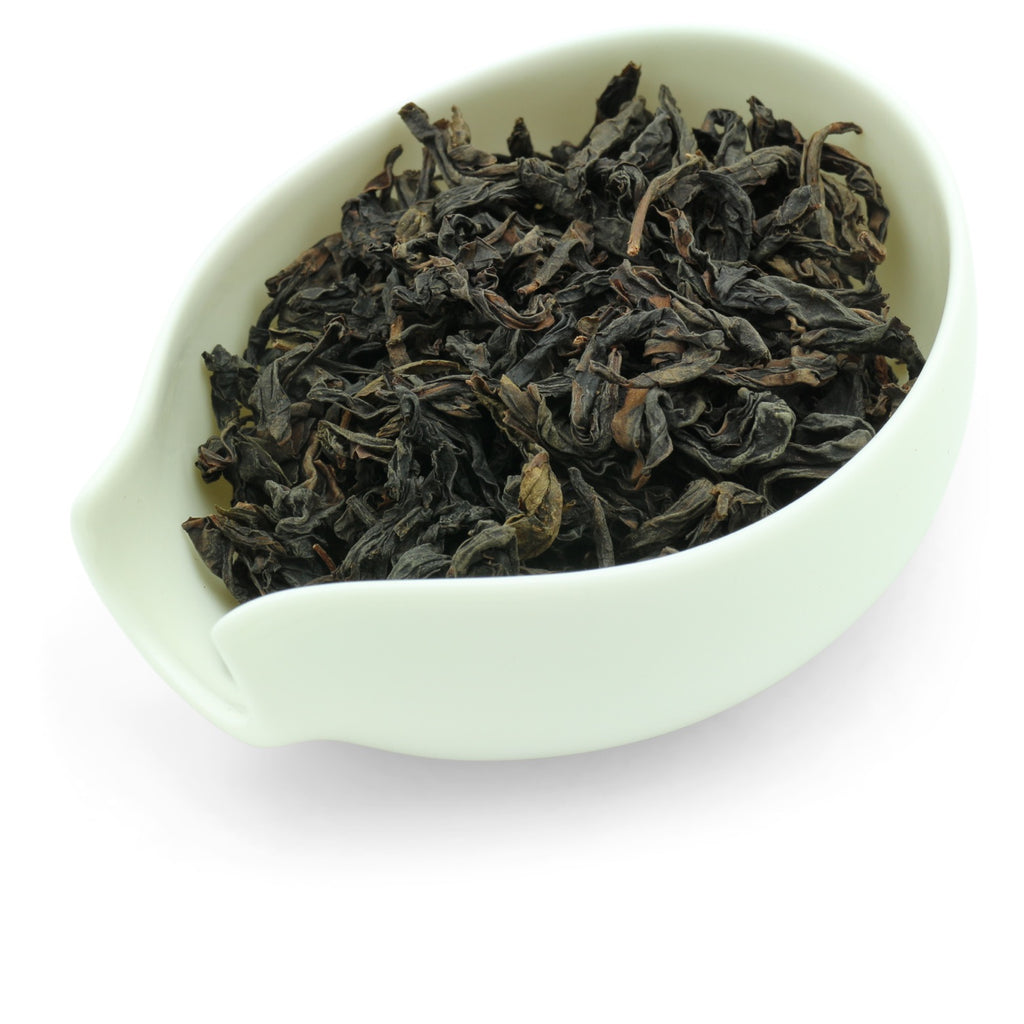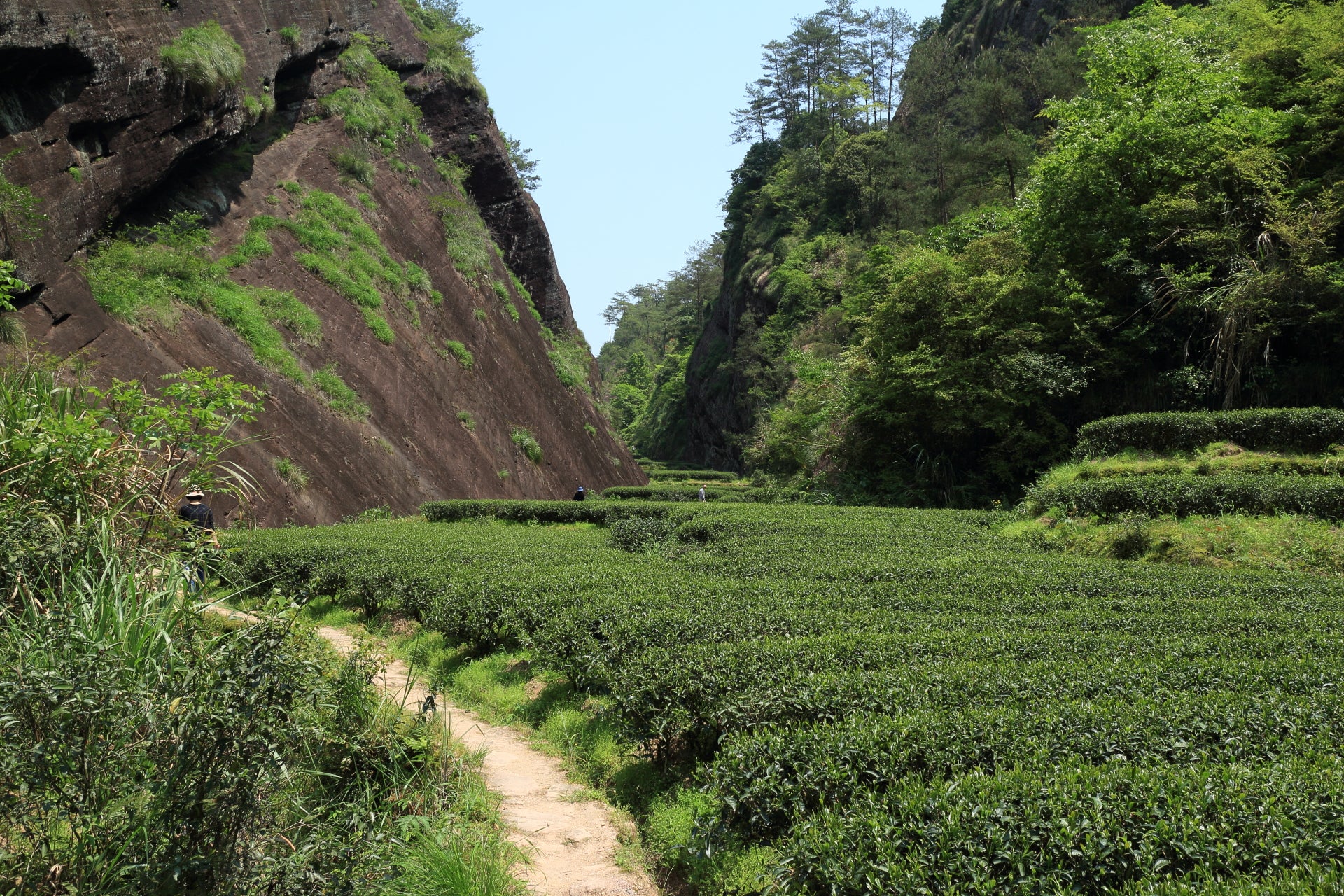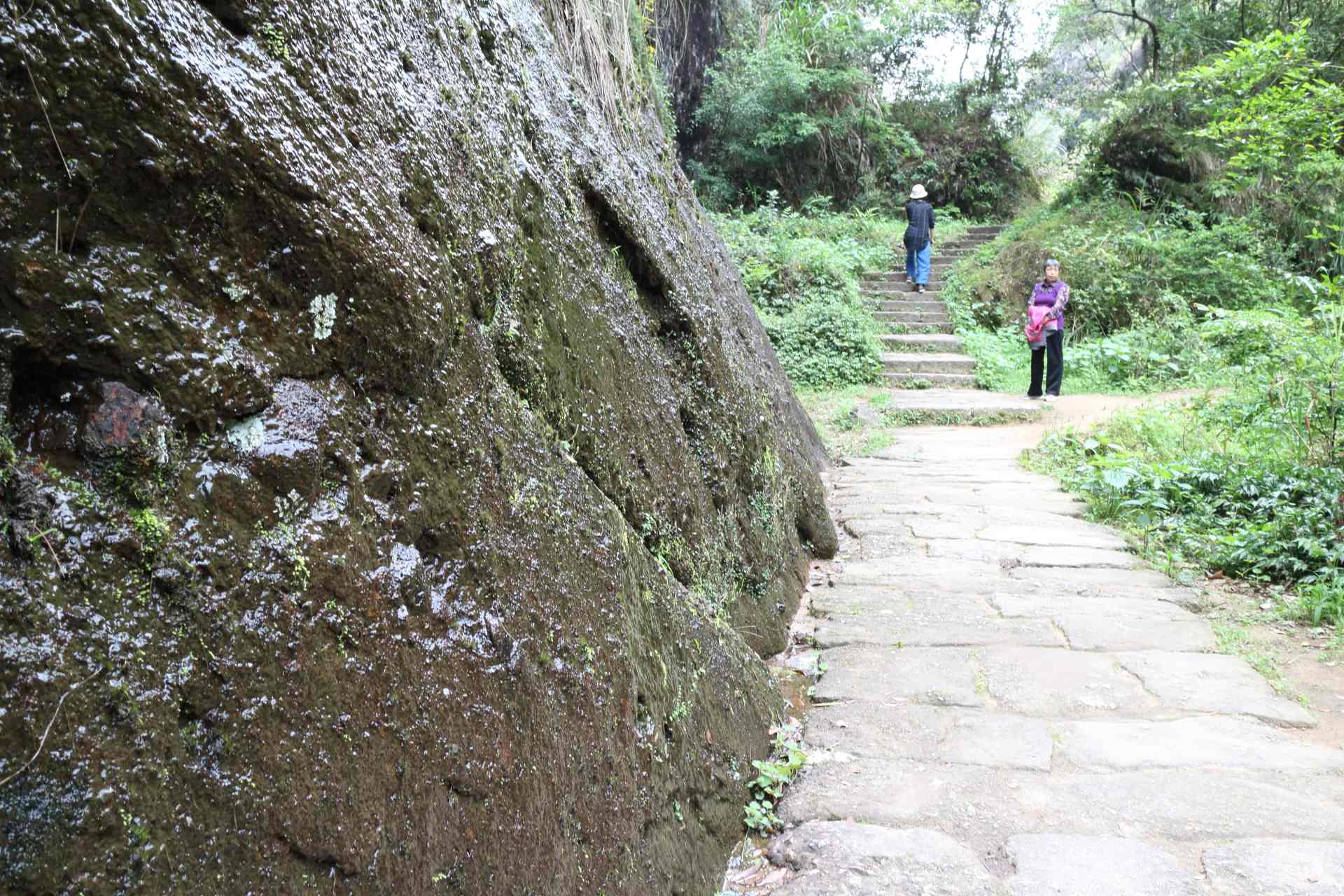Foshou
Dieser weiche und lang anhaltende Yancha ist sehr süffig und - man höre und staune - erfrischend. Die typisch süße Mitte mit einer subtilen Holzkohle-Röstung spielt träge auf der Zunge und weicht in aller Ruhe einer quittenartigen Fruchtigkeit und einer milden Adstringenz. Foshou ist eine bekannte Sorte, deren lange, zerknitterte Blätter entweder an den Duft oder das Aussehen von Zitrusfrüchten oder an die Länge der Hand Buddhas in ostasiatischen Ikonografien erinnern. Das Aroma hat in der Tat eine plausible Zitrusnote, aber auch eine angenehme Kräuternote, die an Eisenhut-Tisane (oft als "griechischer Bergtee" verkauft) erinnert. Dieser Tee kann ähnlich genossen werden, über einen langen Nachmittag gezogen oder bei Einbruch der Dunkelheit getrunken.
- HERKUNFT: Xianrenyan, Wuyishan, Nanping, Fujian, China
- WAS DER NAME BEDEUTET: Buddhas Hand (fo shou)
- ZÜCHTUNG: Foshou
- GEERNTET AM: 27. April 2023
- GESCHMACK: Quitte, Eisenhut, Honig
- Menge: 6g / 500ml
- Wassertemperatur: 90°C
- Ziehzeit: 5 Min.
- Menge: 3g / 100ml
- Wassertemperatur: 90°C
- 4 Aufgüsse: 45, 60, 60, 90 Sek.
Die besten Ergebnisse beim Gongfu Cha erzielen Sie, wenn Sie den Tee im traditionellen Gaiwan oder in einer Yixing-Teekanne zubereiten. Eine zu hohe Wassertemperatur könnte die Blätter verbrennen und zu einem bitteren Geschmack führen.
Additional Information
Authentic Wuyi Yan Cha is produced in the Wuyi Mount region, a UNESCO natural heritage site. The dramatic gorges of the Nine Bend River are surrounded by a largely intact subtropical forest and smooth cliffs of black-brownish rocks. The tea plants grow in narrow valleys, next to the cliffs, in a mineral-rich soil.
Today Wuyi Yan Cha is one of the most valued teas in China. Because it has become a status symbol, many wealthy Chinese are willing to pay a fortune for it without even knowing how a proper Wuyi Yan Cha should taste. The result has been prices inflating to unjustified level and quality often sacrificed for quantity.
Unique to the Wuyi Yan Cha is a mineral savor coming from the soil and the surrounding cliffs. Being the oolong with the highest fire finish, fresh Yan Cha may as a result be strong and pungent. Sharpness and too-prominent astringency subside upon ageing. Premium high-fire Yan Cha tastes better after a few years of storage. Use a Yixing teapot to soften the tea, should it be too astringent for your palate.
The overall tasting profile is rich, complex, and deep. Depending on cultivar and environment, the mineral-roasted flavor is refined by floral, fruity, nutty or woody accents.










